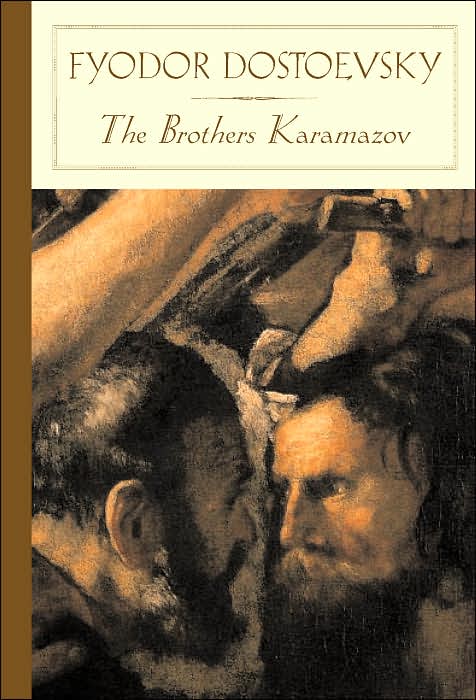
The Second Sunday in Lent
Psalm 27
Genesis 15:1-17
Luke 13:31-35
We are no strangers to waiting, you and I. Our very existence consists of waiting for incalculable events to happen; some mundane, some extraordinarily significant. We wait, sometimes patiently, when the stakes aren’t too high, sometimes pacing the floor, wringing our hands when it is a matter of life and death. We wait, for the weather to change, or for the doctor’s reports to come back. We wait for 5:00 to roll around so that we can get on with our lives in the ways that we want, or we wait to have enough vacation time and money saved up so that we can just get away, or we wait to have enough years in so that we can retire. We wait for our children to sleep through the night, to graduate from diapers, to get out of school, and then we wait for them to come home again. We wait for morning to come during the long nights following the loss of a loved one. We wait for the pain to stop, or the healing to begin or the medication to take effect, or the numbness of our souls to be taken away. In school we wait for teachers to stop teaching, and in church we wait for preachers to stop preaching. (You’re doing it right now.) We are experts in waiting, you and I.
Not that we’re all that good at it. We complain about it to anyone who will listen. We huff and puff when we see a line at the DMV. We complain to the managers when our food takes too long to find its way to our tables. We tap our watches when the preacher has belabored the point. We are experts at waiting, you and I, reluctant experts.
In other words, we take after old Father Abraham. Abraham was a reluctant expert in waiting. It seems that he spent most of his life waiting for one thing or another. What’s worse, most of his waiting was God-initiated. Throughout the ides of the book of Genesis, we get a story of God promising Abraham one thing or another, Abraham doing his part, and then God, seemingly toying with Abraham, making him wait for the promise to come to fruition. The first picture we get of Abraham is him leaving his country and kin to go to a land that God will show him, for God is going to make Abraham “the father of many nations.” So Abraham does. And he waits. And he waits. And he waits. Finally, he stumbles on some land, his nephew, Lot, takes the better portion, and Abraham is left tending his flock and his wife on a barren patch of desert. So there, he waits. For years, eons, Abraham waits for God to follow through, to finish the promise. There, on a dusty patch of desert with no children, Abraham refuses to budge. Perhaps faithfully, piously at first. But by the time we get to the 15th chapter of Genesis, Abraham is belligerently waiting, almost daring God not to follow through.
God does shows up again, “some time later,” as the story goes. God almost seems flippant, “Don’t be afraid, Abram, I’m gong to give you a great reward.” Abraham, sitting in the middle of a barren promise tells God how it is. “What good is a reward from you? You still have not given me a child like you said you would. So any reward that I get will die with me, and you’ve made me wait so long that my death is not far off. No more deals,” says Abraham.
And then the strangest thing happens. God leads Abraham outside, into the dark, and tells him to look up at the stars, to remember the promise, the promise that God will be Abraham’s God, and Abraham will be God’s special one, chosen to father many nations. God reminds Abraham that he is invited to partake in the divine life. And then, almost as quickly as God came, God leaves. God leaves Abraham in the dark, waiting all over again. “A deep and terrifying darkness” comes over Abraham, we are told, as he sits in the dark and contemplates his future. I’m sure that it was dark, and I’m sure that it was terrifying, but I’m willing to bet that the darkest, most terrifying realization that father Abraham came to that long dark night of the soul was this: An invitation to the Divine life is an invitation to wait.
Which is tough for us. As I said, we’re not that good at this waiting thing. We want everything now, quick, easy. Maybe that’s why the fastest growing expression of the faith today is the one that promises that life with God is having everything now…wealth, health, happiness. There is a trend in American religion today that seeks to join us to a god who wants to offer us everything our hearts desire in exchange for faith. Just believe, and you’ll get all you want...”Your best life now!” I understand why that’s so appealing. I’m just not sure that such a faith ushers us into a life with the God of Abraham.
The God of Abraham is a waiting God: “Patient, slow to anger and abounding in steadfast love”. Our Gospel reading this morning tells us as much. Jesus, looking over the city of Jerusalem and contemplating the hellacious death that he is about to undergo laments, like a mother lamenting the loss of her child. “How I have longed to gather you under my wings like a mother hen gathers her chicks,” says Jesus. How long have I waited for you to turn to me, to stop your violent, self-centered ways and live the life that I created you for, says God. How long have I waited for you, longed for you, yearned for you to turn your hearts to me and live!
Waiting, Jesus says, is something God has done much longer than we have. God has been waiting on us to be the people we were created to be since the beginning of time. Waiting for Adam and Eve to be faithful. Waiting on Israel to listen to the prophets, turn from their ways and love God as much as God loves them. Waiting on the people to listen to John the Baptist’s message. Waiting on the disciples to follow Christ. Waiting on the Gentiles to listen to Paul. Waiting for the Church to be a peaceful alternative to the violence of the world. Waiting on you and me to live into our baptismal vows. Before you and I were waiting for God, God was waiting for us. It seems that God is a waiting God. And if we are to join into the Divine life, the life of God, we are to join a life of waiting.
So we sit, with Father Abraham, and we wait: especially during the season of Lent. We sit in the dusty, barren world and we wait for God to come through. In this broken mess that we have created, in this world torn apart by wars that we claim are inevitable, by racism that we say is natural, by economic injustice that we say is fair, we sit during Lent and we dare God to fulfill God’s promises to us. We dare to sit in the dark, scary existence of this mortal life and wait. We wait for God to come through with this business of resurrection, of healing, of a New Heaven and a New Earth. We sit and we wait, allowing our empty stomachs and heavy eyes to be embodied prayers, daring God to come and fill us with the deep yearning of our spirits, to offer us the rest that we have been promised. We sit and we wait in this dark and scary place. Though the buzzards of fear and doubt and disbelief swoop upon us preying on our exposed and vulnerable faith, we dare to wait.
And as we do, our eyes adjust to the darkness. As we walk farther and deeper along this 40 day long road of wait, the pupils of our faith grow until they, straining to capture the least glint of light, begin to make out the shape of the One standing there...no, hanging there in the dark of Good Friday. There, in the middle of hell on earth, the embodied culmination of the darkest corners of our own souls, fears and doubts, we begin to see that even there, God is. We travel this ever darkening Lenten path, waiting on God to deliver us from our misery, only to stumble our way to the foot of the dark, bloody cross and realize that God is there, muttering from the midst of our pain, “I’ve been waiting for you.”







No comments:
Post a Comment